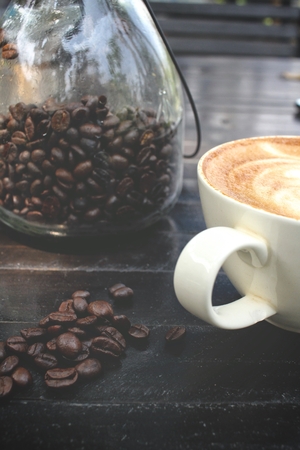The Roots of Coffee in Indian Homes
When we talk about coffee memories in Indian families, it is impossible not to begin with the aromatic and nostalgic South Indian filter Kaapi. The history of coffee in India traces back to the 17th century, when Baba Budan is said to have smuggled seven coffee beans from Yemen into Karnataka. Over time, this humble drink became an inseparable part of daily life, especially in South Indian households, where filter coffee is more than just a beverage—it’s a ritual. Every morning, the gentle gurgle of the decoction dripping through traditional brass filters fills homes with warmth and anticipation. Elders gather in verandahs, sipping hot Kaapi while sharing stories or reading the newspaper, creating lasting family bonds. As years passed, coffee’s journey expanded beyond the southern states. With the rise of café culture in urban India—from Bengaluru’s iconic coffee houses to hipster joints in Mumbai and Delhi—coffee evolved from a family tradition to a social phenomenon. Yet, at its heart, whether shared from steel tumblers at home or ceramic mugs at cafés, coffee continues to be woven into the fabric of Indian family traditions, sparking conversations and memories across generations.
2. Coffee and Family Gatherings
In Indian families, coffee is much more than just a drink—it’s an integral part of social and cultural bonding. Whether it’s the evening Adda sessions, grand festival gatherings, or celebrating life’s milestones like weddings and anniversaries, coffee often acts as the silent catalyst that brings everyone together. The aroma of freshly brewed filter coffee in South Indian homes or the clink of cups during North Indian chai-coffee evenings sets the stage for heartfelt conversations and laughter-filled memories.
The Role of Coffee During Adda Sessions
Evening Adda—an informal gathering for conversation—remains a cherished tradition across India. Friends and family members gather around, sharing stories from their day while sipping on steaming mugs of coffee. In many Bengali households, the term ‘Adda’ is synonymous with quality time, and coffee plays the perfect companion to these lively discussions, helping break the ice and deepen relationships.
Coffee at Festivals and Milestone Celebrations
From Diwali to Eid, Holi to Christmas, festivals in India are incomplete without special snacks and beverages. Coffee tables are adorned with homemade sweets like laddus, barfis, or cakes alongside hot cups of rich filter coffee or instant blends. During milestone celebrations such as housewarmings, birthdays, or graduations, serving coffee signifies hospitality and warmth—a gesture of respect for guests and elders alike.
Common Coffee Occasions in Indian Households
| Occasion | Coffee Style | Cultural Significance |
|---|---|---|
| Evening Adda | Filter Coffee / Instant Coffee | Bonds family & friends through informal chats |
| Festivals (Diwali, Pongal, etc.) | Traditional Filter Coffee / Spiced Coffee | Marks celebration & hospitality |
| Milestone Events (Weddings, Birthdays) | South Indian Filter Coffee / Cappuccino | Cherishes togetherness & joyful moments |
| Morning Rituals | Strong Filter Coffee / Chicory Blend | Kicks off daily routines with positivity |
Thus, in every Indian household, coffee is more than a beverage—it is woven into the very fabric of social life. Each cup poured during these gatherings becomes a vessel carrying stories from one generation to another, reinforcing the sense of belonging and togetherness that defines Indian culture.

3. Heirloom Recipes and Brewing Rituals
Within Indian families, coffee is much more than just a beverage—it is an heirloom passed down through generations, carrying with it stories, traditions, and cherished memories. The process of making coffee at home often starts with treasured recipes like the legendary South Indian filter Kaapi. This strong yet aromatic brew is made using a special metal filter, which many families proudly own as a symbol of their heritage. Each household has its own blend of freshly ground beans and chicory, carefully measured and brewed to perfection. Some prefer the robust flavor of instant Bru, especially during busy mornings or when guests arrive unexpectedly. These quick fixes do not compromise on taste but instead reflect the adaptability and warmth of Indian hospitality.
The brewing rituals are as significant as the drink itself. Preparing filter coffee involves gently tapping the top chamber of the filter, waiting patiently for the decoction to drip, and then mixing it with hot milk and sugar in precise proportions—often according to family tradition. Children watch their elders perform these steps, learning not only the recipe but also the nuances of timing, aroma, and serving style. Over time, these methods become unique signatures of each family—a grandmother’s secret blend or a father’s special twist with spices like cardamom or ginger. Whether served in steel tumblers or ceramic mugs, every cup becomes a vessel for storytelling and connection.
4. Storytelling Over a Cup
In Indian families, the coffee table is not just a place for sipping filter kaapi or instant Nescafé; it is where stories come alive and memories are woven into the fabric of daily life. Coffee time, often enjoyed in the early morning or late evening, becomes an opportunity for storytelling—one of India’s oldest and most beloved traditions.
From childhood tales narrated by grandparents to amusing incidents shared by siblings, every cup of coffee holds the promise of a new anecdote. Family members gather around, sometimes sitting cross-legged on the floor with stainless steel tumblers in hand, sharing experiences that bridge generations. This storytelling ritual goes beyond entertainment; it strengthens family bonds and instills values unique to Indian culture.
Popular Coffee Table Conversations
| Occasion | Story Themes | Typical Phrases Used |
|---|---|---|
| Festive Mornings | Childhood memories, ancestral traditions | “When I was your age…”, “Back in our village…” |
| Rainy Evenings | Funny mishaps, school days nostalgia | “Remember that one monsoon…”, “You wont believe what happened…” |
| Family Gatherings | Wedding tales, travel adventures | “At your uncles wedding…”, “During our Kerala trip…” |
| Casual Weekends | Daily life stories, aspirations | “Someday, we should…”, “I still remember my first job interview…” |
The Role of Coffee in Indian Storytelling Culture
Coffee serves as both catalyst and companion during these conversations. The aroma of freshly brewed filter coffee or chicory blends often triggers nostalgia—reminding elders of their youth in Tamil Nadu or Karnataka, and prompting younger members to ask questions about family history. In many homes, the phrase “Let’s have coffee” is synonymous with “Let’s talk.” These moments foster openness and emotional connection across generations.
Cherished Anecdotes from Around India
- Bangalore: Grandmothers recounting how they ground coffee beans using traditional hand grinders.
- Kolkata: Relatives sharing memories of Adda sessions at local cafés after college exams.
- Mumbai: Parents discussing their first taste of filter coffee after moving from North India.
- Chennai: Cousins laughing about spilt coffee during Pongal celebrations.
Coffee Time: Where Stories Begin and Memories Last
Thus, the humble Indian coffee table transforms into a stage for heartfelt storytelling—where each sip revives old times and every story strengthens familial ties. In Indian culture, brewing coffee is not just about making a beverage; it’s about making memories together—one story at a time.
5. Modern Twists and Café Influence
In recent years, Indian coffee culture has witnessed a remarkable transformation, thanks to the influence of global coffee trends and the mushrooming of chic cafés in cities like Bengaluru, Mumbai, and Delhi. These trendy spots, often inspired by international café aesthetics, have become social hubs for the younger generation. Here, friends gather for endless adda over cappuccinos or cold brews, while working professionals find their productivity boost with a filter kaapi latte in hand.
The rise of specialty cafés has brought about an exciting blend of traditional Indian flavors with modern brewing methods. Cafés proudly serve South Indian filter coffee alongside espresso-based drinks, and menus now feature creative concoctions like masala chai affogato or cardamom-spiced mochas. It’s not uncommon to see youngsters sipping on turmeric lattes or rose-flavored cold brews—proof that age-old ingredients are being given a contemporary twist.
Moreover, the café culture has encouraged experimentation at home as well. Millennials and Gen Z are brewing Dalgona coffee during lockdowns, learning pour-over techniques from Instagram reels, and sharing their own family recipes with a twist—think filter coffee with a hint of hazelnut syrup or iced coffee infused with jaggery.
This seamless blend of tradition and trendiness reflects how Indian families cherish their coffee memories while embracing new experiences. It’s a unique cultural evolution: aunties may still prefer their morning tumbler of strong decoction, but their children are just as likely to host friends for a game night featuring French press brews and homemade biscotti. Through these modern twists, coffee continues to connect generations—each sip carrying forward stories both old and new.
6. Coffee as an Identity
Coffee in India is much more than just a beverage; it is deeply woven into the fabric of regional identities and daily life. Across the vast landscape of India, coffee tells unique stories that reflect local values, traditions, and social connections. In the southern city of Bangalore, for example, Darshini cafes are iconic spaces where filter coffee is not only a morning ritual but also a symbol of hospitality and camaraderie. The aromatic decoction being poured into steel tumblers and savored while standing at the counter is a quintessential Bangalorean experience, reinforcing community ties and local pride.
Meanwhile, in the bustling heart of Kolkata, College Street’s historic coffee houses are legendary. Here, students, poets, and intellectuals gather over endless cups of ‘Kapi’ to debate ideas, share memories, and build lifelong friendships. The culture of adda—spirited conversations accompanied by coffee—has become synonymous with Kolkata’s vibrant intellectual life. These rituals underscore how coffee transcends mere consumption; it becomes a backdrop for meaningful exchanges and personal growth.
The diversity in preparation methods—from Karnataka’s traditional filter coffee brewed with chicory to West Bengal’s sweetened milky concoctions—mirrors the diversity of Indian society itself. Each cup tells its own story: one of family heritage, regional flavors, and generational bonds. Whether enjoyed in the quiet comfort of home or amidst the lively chatter of a roadside stall, coffee reflects the unique essence of Indian communities.
Ultimately, coffee serves as an anchor for identity across India. It connects people to their roots while offering a taste of belonging wherever they may be—from cosmopolitan urban centers to small rural towns. As families pass down their favorite recipes and cherished memories, coffee continues to foster unity, spark conversation, and celebrate the rich tapestry of Indian life.

